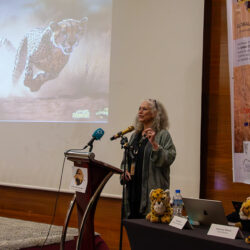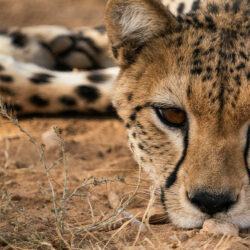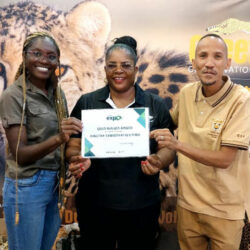Empowering Conservation: CCF’s Commitment to Cheetahs and Communities
-
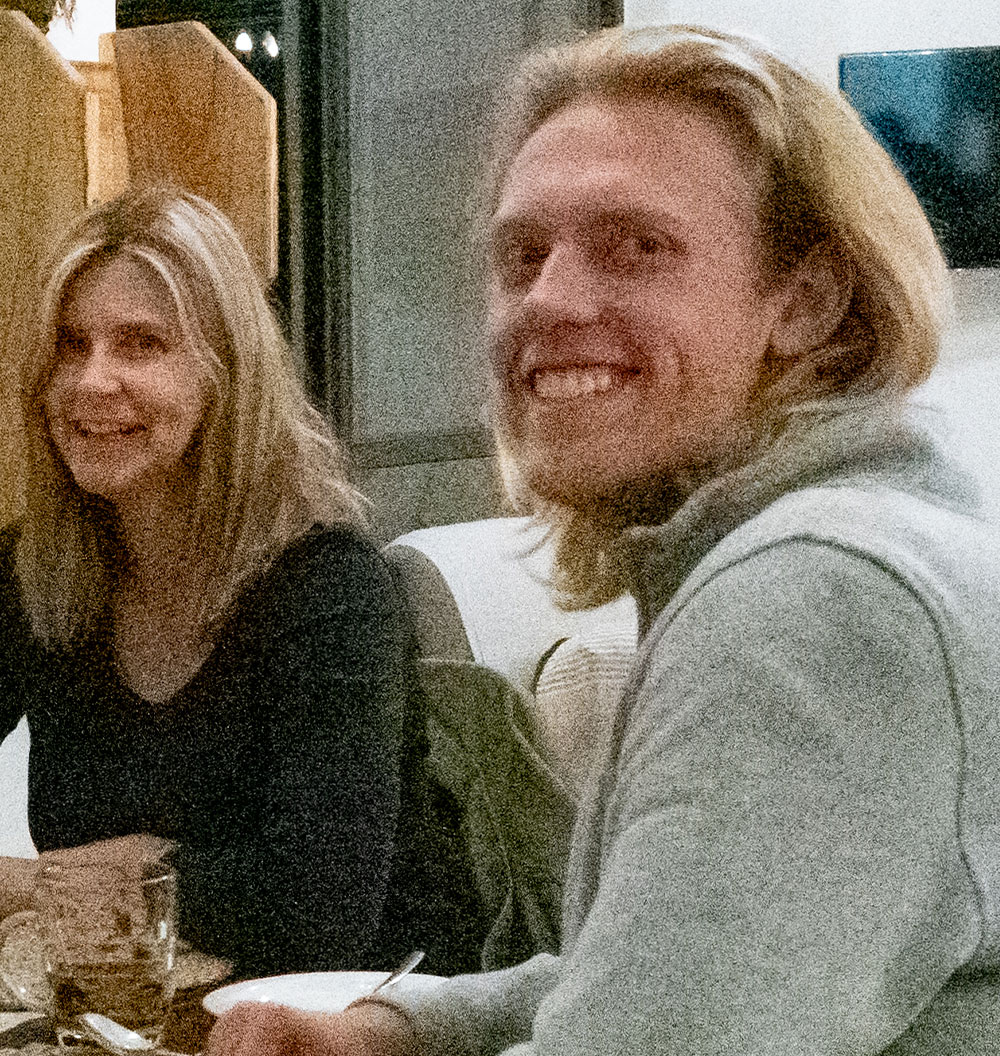
- by Cameron Carver October 24, 2023
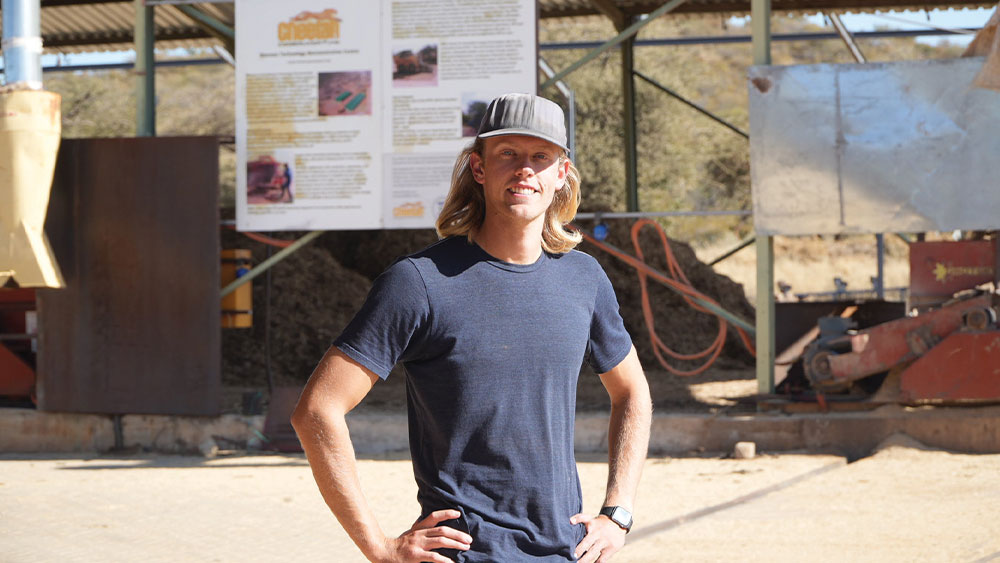
I hope this message finds you well. I currently serve as the Facility Engineer for the Cheetah Conservation Fund (CCF) at the International Research and Education Centre in Namibia. During the summers of 2018 – 19, I completed an internship with CCF and graduated in 2020 with a degree in mechanical engineering from Arizona State University. I began working for CCF shortly after graduation but my bond with the organization has roots stretching back to my childhood.
Ever since I was young, I’ve been enamored with cheetahs. Their incredible speed, distinctive “tear mark” facial patterns, and the thrilling high-speed hunting pursuits always left me in awe. My sister shared my early fascination, and our parents nurtured this passion, helping us launch “Cheetah Kids,” an initiative to raise funds and awareness by connecting with other children similarly enchanted by the cheetah. Over the years, my knowledge and commitment to the species deepened, solidifying my lifelong dedication to its survival and leading me to pursue a career in conservation.
Your generous support has allowed CCF to develop a world-class research and education facility in Namibia. We also now have a new facility in Somaliland: the Cheetah Rescue and Conservation Centre (CRCC). Adding a second field conservation center was necessary for the species’ rangewide survival, it is a big commitment. We need your support today. As we aim to further our mission to save the cheetah, we hope to rely on your support today. Between now and November 10th, we hope to raise $120,000.
As the Facility Engineer at CCF’s Field Centre in Namibia, I am directly involved in the daily operational activities across the entire campus. From the life-saving procedures in our veterinary clinic, to the milk processing at our Model Farm and Dancing Goat Creamery, to the comforts provided in our overnight accommodations, CCF is isolated (off-grid) generating all our own power (80% from solar) and pumping our own water operates almost entirely on solar energy. To increase efficiency, we installed an array of networked security cameras to monitor vital facility infrastructure. This saves hours of tedious work (and fuel) in driving to manually check water tanks and monitor temperatures in food storage and scientific sample storage.
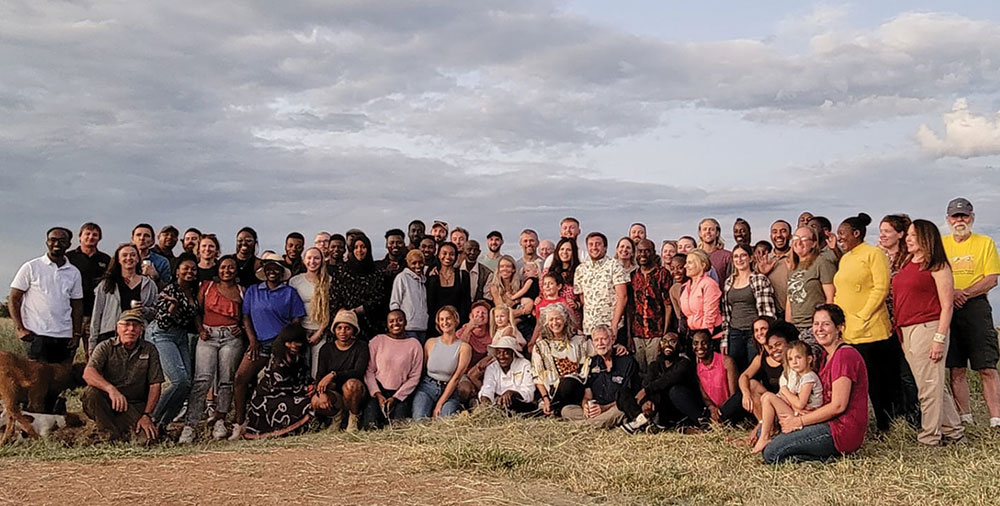
CCF’s responsible use of your contributions directly benefits not only the cheetah but also the people that share the landscape with wildlife, including predators.
Our conservation approach is rooted in creating closed-loop systems. At each phase of our work, our dedication to saving the cheetah, there are benefits for all stakeholders. By embracing the principle of “closing the loops,” we effectively transform outputs, such as waste wood from habitat restoration, into valuable inputs, including livestock feed and fuel. This practice underscores our deep respect for natural resources and the significance of your generous contributions. We deeply appreciate your choice to support CCF and hope to have your continued backing. Your assistance is pivotal to our mission’s success.
Every aspect of our operation, even down to repurposing wastewater, emphasizes environmental awareness and community welfare. This holistic approach is not only out of reverence for natural resources but is also a testament to the value we place on your contributions.
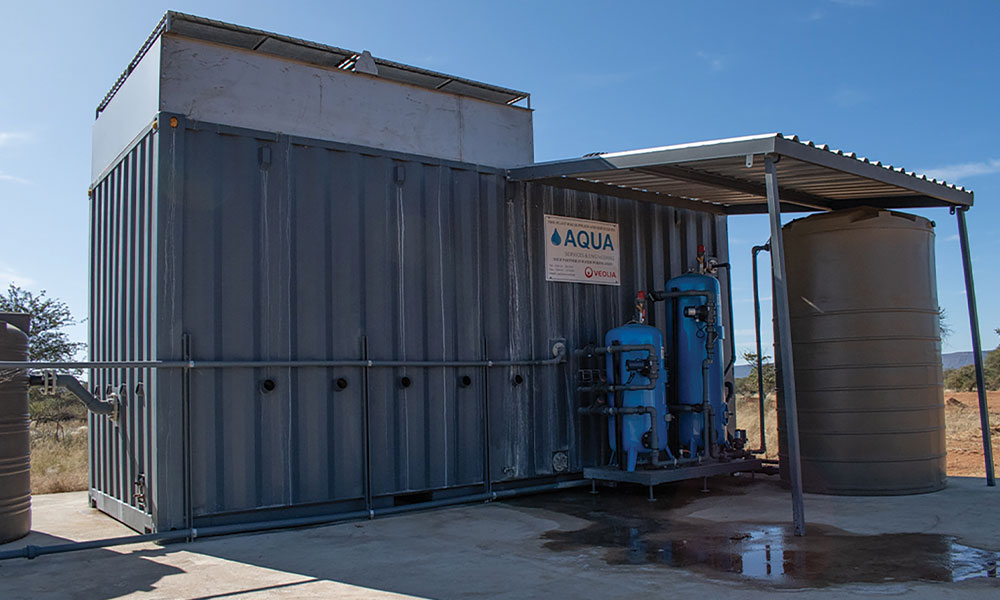
Our achievements in Namibia serve as a template we’re eager to replicate in Somaliland. By leveraging time-tested systems and best practices, our expansion remains attuned to the comprehensive needs of the landscape, extending beyond the cheetah’s welfare. Currently, the new Centre primarily functions as a veterinary clinic, overseeing crucial rescue and rehabilitation missions. Yet, our vision for the CRCC is expansive, and our ambition for saving the cheetah is unwavering.
Thank you for your unwavering support of CCF and the cheetah. Your contributions fuel our work and help us plan for the future. Please make a donation today.
Sincerely,
Cameron Carver | Facility Engineer in Namibia
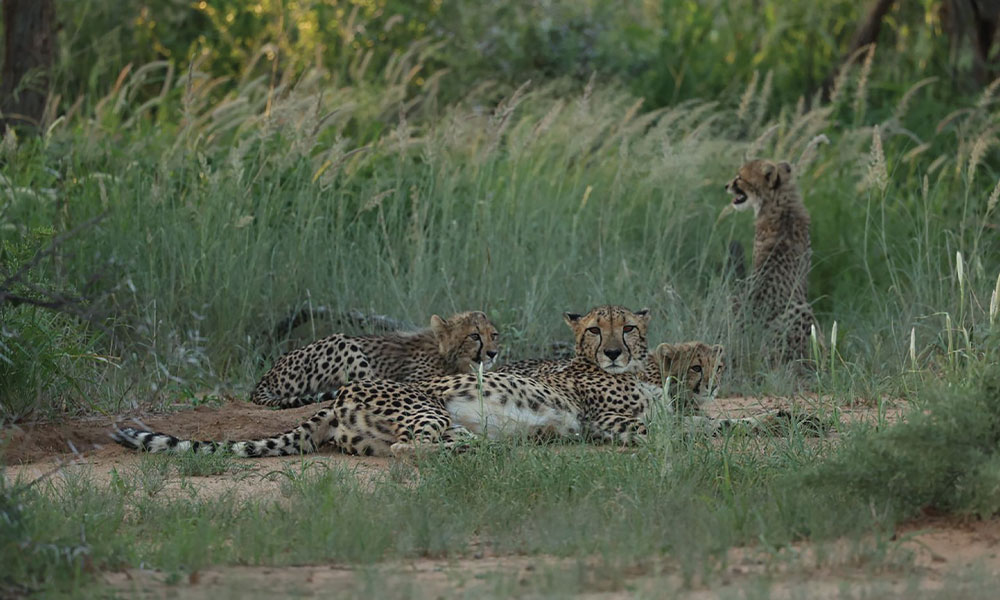
Cheetahs and Kids
Fascination with the Fastest Land Animal
Children’s innate curiosity and sense of wonder naturally draw them to the animal kingdom, and the cheetah stands out as a particular favorite among many young people.
Cheetahs, with their unmatched speed and striking appearance, stand as an emblem of nature’s marvels. Recognized as the fastest land animals, they can achieve breathtaking speeds of up to 70 mph. Their unique spotted coat, sleek physique, and distinctive “tear marks” add to their visual allure.
The mesmerizing grace and power with which a cheetah moves, especially during a full-speed chase, makes it the focus of many wildlife documentaries. Seeing a cheetah up close at zoos or in the wild can be an awe-inspiring experience for many children, inspiring a lifetime of love for the species.
Conservation Closed Loop – Habitat Restoration
Restoration – CCF clears overgrown thornbush in cheetah habitats to create open spaces for cheetah populations to thrive.
Conversation – The cleared thornbush is processed into eco-friendly products like Bushblok® premium fuel logs.
Distribution – Bushblok® is sold in Africa and parts of Europe as a sustainable and low emission alternative for cooking and home heating, reducing deforestation and habitat degradation.
Reinvestment – The success of Bushblok® serves as an example, encouraging a burgeoning biomass industry in Namibia, creating a sustainable source of economic growth.
Related Reading
-
February 7, 2024
Dr. Laurie Marker’s Opening Speech at the Global Cheetah Summit -
November 15, 2023
Double Your Gift – Home Range for the Holidays 2023 -
December 7, 2022
CCF Wins Gold Prize at the 2022 Namibia Tourism Expo
